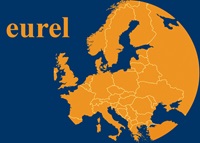Sweden has gone from being a historically homogeneous society to becoming a religiously diverse nation, with 27% of the population either foreign-born or having two foreign-born parents. In recent years, however, there has been a shift from the formerly generous asylum policies toward stricter immigration controls, accompanied by an increase in anti-immigrant rhetoric in public debate. While the freedom to practice one's religion is a constitutional right, media reports indicate a growing problem of threats and hatred targeting groups based on their religion. This trend raises important questions about the gap between Sweden's commitment to religious freedom and the lived realities of religious communities as they navigate growing security concerns. Drawing on the results of a large national survey of local congregations from diverse faith traditions, this paper highlights the vulnerability of religious groups to crimes, threats, and other safety risks, and examines how these experiences differ among communities. It further explores how factors such as international conflicts, domestic political rhetoric, and media coverage directly influence religious groups' sense of safety and vulnerability. The paper concludes by discussing possible consequences of the situation and how these experiences may shape religious groups' place in public life.

 PDF version
PDF version
